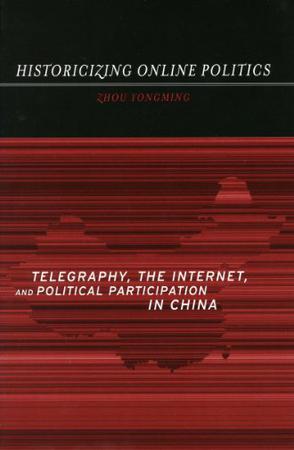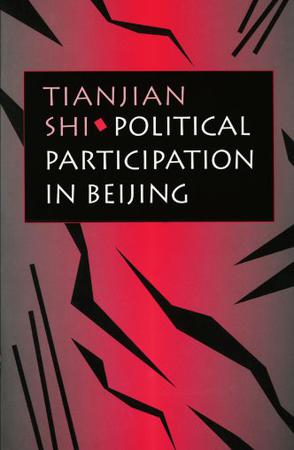-

保护社会的政治
本书是复旦大学国际关系与公共事务学院陈明明教授主编的《复旦政治学评论》最新一辑(14辑),聚焦政治学重要议题——福利国家问题,着重讨论在国家和社会转型以及经济危机时期,关于国家福利的观念、政策以及施行办法,并以丹麦、韩国、希腊为案例,具体说明国家福利在不同社会情况下如何安排落实及可能产生的危机。 * 《复旦政治学评论》为复旦大学国际关系与公共事务学院主办,学术性与思想性并重的政治研究类系列辑刊,入选CSSCI来源集刊。 * 现代国家政治的核心是对社会的保护,本辑聚焦现代福利国家制度,不同案例启示中国福利政策走向。 -

State and Agents in China
Chinese government officials have played a crucial role in China's economic development, but they are also responsible for severe problems, including environmental pollution, violation of citizens' rights, failure in governance, and corruption. How does the Chinese Party-state respond when a government official commits a duty-related malfeasance or criminal activity? And how does it balance the potential political costs of disciplining its own agents versus the loss of legitimacy in tolerating their misdeeds? State and Agents in China explores how the party-state addresses this dilemma, uncovering the rationale behind the selective disciplining of government officials and its implications for governance in China. By examining the discipline of state agents, Cai shows how selective punishment becomes the means of balancing the need for and difficulties of disciplining agents, and explains why some erring agents are tolerated while others are punished. Cai finds that the effectiveness of punishing erring officials in China does not depend so much on the Party-state's capacity to detect and punish each erring official but on the threat it creates when the Party-state decides to mete out punishment. Importantly, the book also shows how relaxed discipline allows reform-minded officials to use rule-violating reform measures to address local problems, and how such reform measures have significant implications for the regime's resilience. -

Historicizing Online Politics
It is widely recognized that internet technology has had a profound effect on political participation in China, but this new use of technology is not unprecedented in Chinese history. This is a pioneering work that systematically describes and analyzes the manner in which the Chinese used telegraphy during the late Qing, and the internet in the contemporary period, to participate in politics. Drawing upon insights from the fields of anthropology, history, political science, and media studies, this book historicizes the internet in China and may change the direction of the emergent field of Chinese internet studies. In contrast to previous works, this book is unprecedented in its perspective, in the depth of information and understanding, in the conclusions it reaches, and in its methodology. Written in a clear and engaging style, this book is accessible to a broad audience. -

Political Participation in Beijing
In this first scientific survey of political participation in the People's Republic of China, Tianjian Shi identifies twenty-eight participatory acts and groups them into seven areas: voting, campaign activities, appeals, adversarial activities, cronyism, resistance, and boycotts. What he finds will surprise many observers. Political participation in a closed society is not necessarily characterized by passive citizens driven by regime mobilization aimed at carrying out predetermined goals. Beijing citizens acknowledge that they actively engage in various voluntary participatory acts to articulate their interests. In a society where communication channels are controlled by the government, Shi discovers, access to information from unofficial means becomes the single most important determinant for people's engaging in participatory acts. Government-sponsored channels of appeal are easily accessible to ordinary citizens, so socioeconomic resources are unimportant in determining who uses these channels. Instead, voter turnout is found to be associated with the type of work unit a person belongs to, subjective evaluations of one's own economic status, and party affiliation. Those most likely to engage in campaign activities, adversarial activities, cronyism, resistance, and boycotts are the more disadvantaged groups in Beijing. While political participation in the West fosters a sense of identification, the unconventional modes of participation in Beijing undermine the existing political order. -

China's Trapped Transition
-

After the Internet, Before Democracy
China has lived with the Internet for nearly two decades. Will increased Internet use, with new possibilities to share information and discuss news and politics, lead to democracy, or will it to the contrary sustain a nationalist supported authoritarianism that may eventually contest the global information order? This book takes stock of the ongoing tug of war between state power and civil society on and off the Internet, a phenomenon that is fast becoming the centerpiece in the Chinese Communist Party's struggle to stay in power indefinitely. It interrogates the dynamics of this enduring contestation, before democracy, by following how Chinese society travels from getting access to the Internet to our time having the world's largest Internet population. Pursuing the rationale of Internet regulation, the rise of the Chinese blogosphere and citizen journalism, Internet irony, online propaganda, the relation between state and popular nationalism, and finally the role of social media to bring about China's democratization, this book offers a fresh and provocative perspective on the arguable role of media technologies in the process of democratization, by applying social norm theory to illuminate the competition between the Party-state norm and the youth/subaltern norm in Chinese media and society.